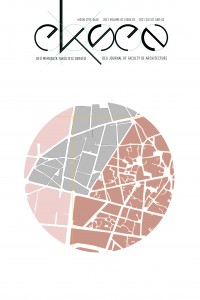Öz
Many cities in sub-Saharan Africa have a strong heritage that traces their pre-colonial, colonial and postcolonial past as well. These heritages, which largely deserve to be recognized, can be found today in countries that rarely have inventories for efficient management and where policies for the conservation and improvement of urban heritage are insufficient. Besides, the need to modernize cities has been associated with the risk of degradation or destruction of cultural heritage in insufficient processes of urban regeneration. These challenges raise the question of the role cultural heritage can play in the regeneration of historic urban areas in Africa. The purpose of this article is to discuss the success conditions of the urban regeneration process for the development and reintegration of cultural quarters in the city of Porto-Novo. The regeneration capacity of the city's historic center has been evaluated within the framework of the indicators to create attractive cultural quarters. As a result, suggestions were developed for the regeneration of Porto-Novo cultural quarters by identifying the current positive and negative characteristics.
Anahtar Kelimeler
Kaynakça
- Agossou N. (2011). Paradoxes of urban sprawl in Porto-Novo land dynamics versus demographic and economic dynamics. Les Cahiers d'Outre-Mer (N 256) Presses universitaire de Bordeaux, 467-484. Aux sources de l'humanité, Ouadada, 2019.
Ayrıntılar
| Birincil Dil | Türkçe |
|---|---|
| Konular | Kentsel Politika |
| Bölüm | Araştırma Makaleleri |
| Yazarlar | |
| Yayımlanma Tarihi | 30 Mayıs 2021 |
| Yayımlandığı Sayı | Yıl 2021 Cilt: 2 Sayı: 1 |

